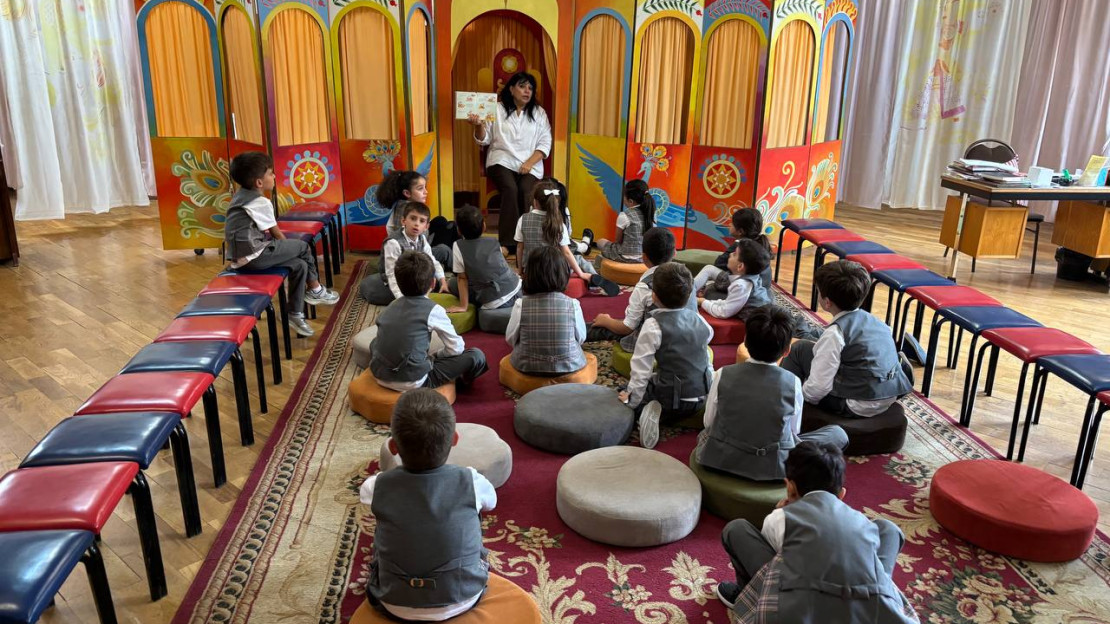
Visiting a library is not only about borrowing a book—it is also an important part of cultural education. Children’s libraries, and especially the Khachatur Abovian National Children’s Library, play a vital role in shaping a generation of readers, awakening a love for literature, and guiding children through the world of both artistic and educational books.
The library was founded in 1933. In 1935, following the death of children’s writer Atabek Khnkoian, it was named after him—“Khnko Aper”—and gradually became one of the most beloved destinations for young readers. It is no coincidence that the very first excursion for first-graders, who are only just adjusting to their new student life, begins here, at this library.
Libraries teach children that books are not only the most classical but also the greatest source of knowledge, imagination, and creativity—something that the modern digital world can never replace. Teachers of the youngest grades emphasize that such visits, at an early school age, cultivate not only a love of reading but also respect for cultural heritage.
This idea is also supported by international experience. Library education is long recognized in the knowledge-driven world as a tool for ensuring continuity in the educational process and fostering exploration. In many countries, children take their first steps in libraries, learning to use a wide range of both print and digital sources. UNESCO and other international organizations actively implement programs that stress the importance of library education in developing critical thinking, independent learning skills, and an appreciation for culture.
The visit of the new “Usum” first-graders to the Khnko Aper Library was filled with excitement and a sense of tradition. The children were introduced to the library’s history, toured the reading halls, and enjoyed the variety of children’s books on display. Beyond the theoretical side, the trip also provided hands-on learning: students not only saw how books are borrowed and read, but also began to realize that visiting the library should become a natural and lasting habit.